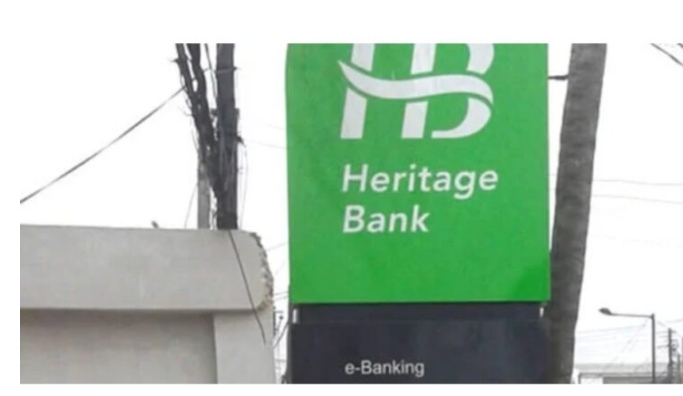NDIC speaks on payment of Heritage Bank depositors with BVN-linked accounts
The Nigeria Deposit Insurance Corporation (NDIC) says 84.98 percent of Heritage Bank depositors with accounts linked to bank verification numbers (BVN) have been paid.
Bello Hassan, managing director and chief executive officer (CEO) of NDIC, spoke on Thursday at the 21st edition of the NDIC workshop for business editors and the Finance Correspondents Association of Nigeria (FICAN).
On June 3, the Central Bank of Nigeria (CBN) revoked the licence of Heritage Bank due to the lender’s “inability to improve its financial performance”.
Following the decision, NDIC said a maximum of N5 million would be paid to each depositor of Heritage Bank.
Two days later, the corporation said it was already in the process of paying depositors of the bank.
However, on July 1, the NDIC said discrepancies in bank verification numbers (BVN) were delaying payments to some customers.
On August 12, the corporation said it had paid 82.36 percent of insured deposits to customers of the defunct bank.
Speaking on the progress made, Hassan said the achievement is in line with the provisions of the International Association of Deposit Insurers (IADI) Core Principle 15, which emphasises timely payouts to depositors of failed banks.
“Acting in accordance with the relevant provisions of the Banks and Other Financial Institutions Act (BOFIA) 2020 and the NDIC Act 2023, the NDIC was appointed liquidator to manage the orderly resolution of the bank and oversee the payment of its depositors and other claimants,” Hassan said.
“In the discharge of this critical role of depositor reimbursement, the corporation began the payment of the insured deposits of N5 million maximum per depositor within a record time of four days of the bank’s closure.
“This was achieved using Bank Verification Numbers (BVN) as a unique identifier to locate depositors’ alternate accounts in other banks without the need to fill forms or visits the NDIC offices.
“This innovative approach has indeed, enabled the payment of 84.98% of depositors with BVN linked accounts to date.”
He said the prompt payment of depositors significantly cushioned the negative impact of bank failure, especially during the current challenging economic climate.
The NDIC boss reiterated the corporation’s commitment to ensuring that depositors with balances exceeding N5 million receive the balance of their deposits having largely reimbursed depositors their insured deposits.
NDIC COMMENCES PROCESS OF RECOVERING DEBT
Hassan said the corporation has already initiated the process of debt recovery and realisation of investments and physical assets of the defunct bank to ensure timely payment of the uninsured deposits of Heritage Bank.
“These uninsured deposits represent a significant portion of the total deposits in Heritage Bank,” he said.
“In this regard, the corporation is already working assiduously to ensure that, all depositors with amounts in excess of the maximum insured amount of N5 million are paid through liquidation dividends from the realisation of the defunct bank’s assets and recovery of debts.”
On June 13, the NDIC announced the sale of 48 bank properties and chattel, including vehicles, office equipment, plant, and machinery, located in 62 different locations across the country.
The head office of the bank and its annexe located at 143 Ahmadu Bello Way and 130 Ahmadu Bello Way, Victoria Island, Lagos, was listed for sale, including buildings, chattels, generator, and vehicle.
Other properties include six different branches in Lagos, four branches in Abuja, four in Rivers states, and across the country.
‘CREDITORS WILL RECEIVE PAYMENTS AFTER ALL DEPOSITORS HAVE BEEN REIMBURSED’
Hassan said creditors of the defunct bank will receive payments after all depositors have been fully reimbursed.
He said the orderly process, based on asset realisation and priority of claims, is essential in maintaining public trust in the banking system and promoting financial stability.
Hassan said the handling of the Heritage Bank liquidation illustrates the broader role of the NDIC in ensuring that even in times of financial disruption, “depositors can be rest assured that their funds are protected”.


























